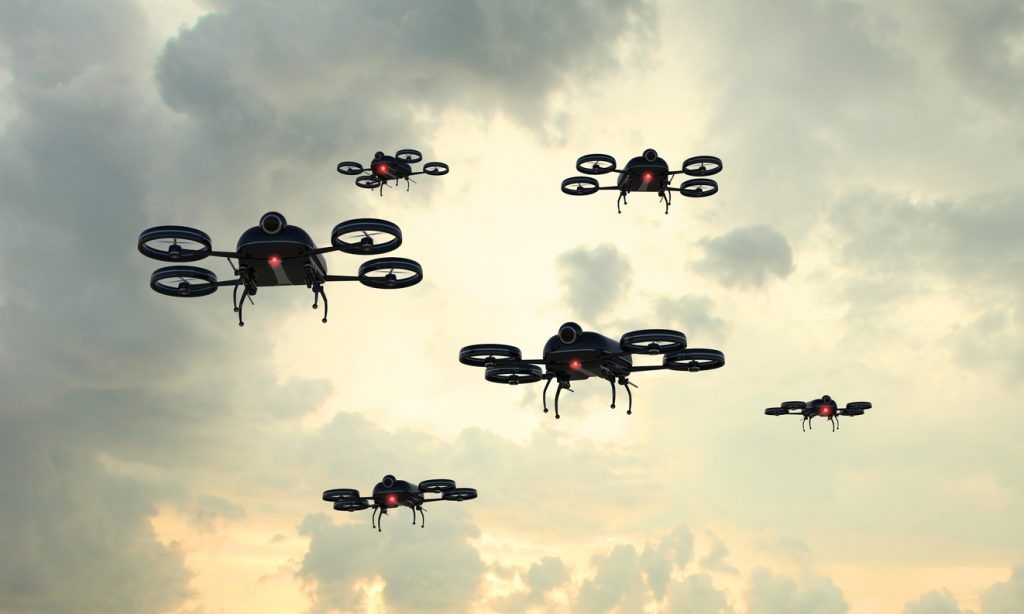The Future Unveiled: How Drones Are Set to Revolutionize Our World
Drones, once a niche technology, have taken flight and are soaring toward a future filled with remarkable advancements and transformative possibilities. As innovation propels these unmanned aerial vehicles (UAVs) to new heights, we are on the cusp of witnessing a revolution that will impact countless industries and change the way we live, work, and interact with our world. Here's a glimpse into the exciting and promising future of drones and the improvements that lie ahead.
1. Autonomous Flying Machines
The future of drones is autonomous. Manufacturers are actively developing AI-powered drones capable of making decisions and navigating complex environments without human intervention. These drones will be capable of precise, automated tasks, from aerial surveys and deliveries to search and rescue missions.
Imagine a future where a drone can conduct routine infrastructure inspections, monitor wildlife populations, or perform maintenance tasks on its own, freeing up human workers for more specialized and creative roles.
2. Improved Battery Technology
One of the limitations of today's drones is limited flight time due to battery constraints. However, the future promises substantial improvements in battery technology. Longer flight times will open up a world of possibilities, from extended aerial photography sessions to more efficient delivery routes for e-commerce giants.
With drones capable of staying airborne for hours or even days, we can expect more extensive data collection, surveillance, and monitoring applications across industries, including agriculture, environmental conservation, and disaster response.
3. Enhanced Connectivity
Drones of the future will be more connected than ever before. They will leverage advanced communication systems, including 5G networks, to relay data in real-time. This connectivity will enable remote pilots to have a deeper understanding of their drone's surroundings and better control over their operations.
In applications such as disaster response and search and rescue missions, drones will collaborate seamlessly with other technologies, like robotics and artificial intelligence, to increase their effectiveness in locating survivors and delivering critical aid.
4. Swarming Technology
Swarming technology will play a significant role in the future of drones. Imagine hundreds, or even thousands, of drones working together in unison to accomplish complex tasks. This concept can be applied across various industries, from agriculture (precision crop spraying) to entertainment (synchronized light shows).
In agriculture, swarms of drones could efficiently cover vast fields, monitoring crops, and applying treatments precisely where needed. In entertainment, drone light shows could rival the most dazzling fireworks displays, choreographed with breathtaking precision.
5. Urban Air Mobility (UAM)
The skies above our cities are set to become the highways of the future. Urban air mobility, or flying taxis, is a concept that promises to alleviate traffic congestion and transform urban transportation. Electric vertical takeoff and landing (eVTOL) drones will whisk passengers across town in minutes, revolutionizing our daily commutes.
As UAM becomes a reality, we can expect shorter travel times, reduced environmental impact, and a new era of urban planning that integrates air travel into the fabric of our cities.
6. Environmental Conservation
Drones will be instrumental in safeguarding our planet. Future drones equipped with advanced sensors and AI will monitor biodiversity, track climate change impacts, and combat illegal activities like poaching and deforestation. They will provide crucial data for environmental conservation efforts, helping to protect endangered species and fragile ecosystems.
In the near future, drones may even participate in reforestation efforts by planting seeds in hard-to-reach areas, contributing to global reforestation initiatives.
Conclusion
The future of drones is limitless, driven by relentless innovation and boundless imagination. As they continue to evolve, drones will become indispensable tools across a multitude of industries, from healthcare and agriculture to transportation and entertainment. Their improvements in autonomy, battery technology, connectivity, swarming capabilities, and environmental applications are set to shape a brighter and more connected future for us all. The drones of tomorrow are poised to revolutionize our world, making it safer, more efficient, and more interconnected than ever before.
